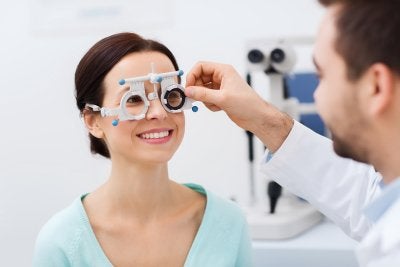Did you know that September has been designated as Healthy Aging Month? Its purpose is to remind people that it’s never too late in life to take control of their wellness. One commonly overlooked aspect of aging is its impact on your eyes. Visiting an ophthalmologist in Chicago regularly is important at every stage of life, but it’s particularly crucial as you grow older. Millions of Americans face blindness because of age-related vision changes. Scheduling a comprehensive exam every year with your eye doctor will help you manage your vision health. Not only can your ophthalmologist diagnose problems early on, but he or she can also provide some general eye care tips to help you protect your sight. 
Kick the Habit
Your ophthalmologist might advise you to quit smoking. If you smoke, you should know that the habit directly increases your risk of developing cataracts and age-related macular degeneration. Tobacco use can also indirectly increase your risk of vision problems, such as by making you more susceptible to cardiovascular diseases that affect the health of your eyes. Quitting smoking is hard, but dealing with the health consequences of smoking is far worse. By quitting, you’ll improve the health of everyone around you as well as your own health. If you’re having trouble quitting or you need a little more convincing, your eye doctor may refer you to your primary care physician, who can connect you with appropriate resources in your community.
Pay Attention to Your Diet
When you were younger, you might have consumed sugary sodas and baked goods without a second thought, but the body of an older adult is less forgiving. You may have already realized that eating healthier is better for your energy levels, mood, and cardiac health, but it’s also good for your eyes. Certain foods are rich in the nutrients that your eyes need. These include cold water fish like salmon and tuna, dark green leafy vegetables like kale and spinach, and citrus fruits like kiwi and oranges. Eggs are also good for eye health because they contain lutein and zeaxanthin. These nutrients may offer some protection against age-related macular degeneration.
Manage Your Medical Conditions
If you’re undergoing regular wellness exams at your doctor’s office, then you might already know if you have high blood pressure, abnormal cholesterol levels, or high glucose levels. If so, it’s important to work with your doctor to manage these problems because they can affect your eye health.

